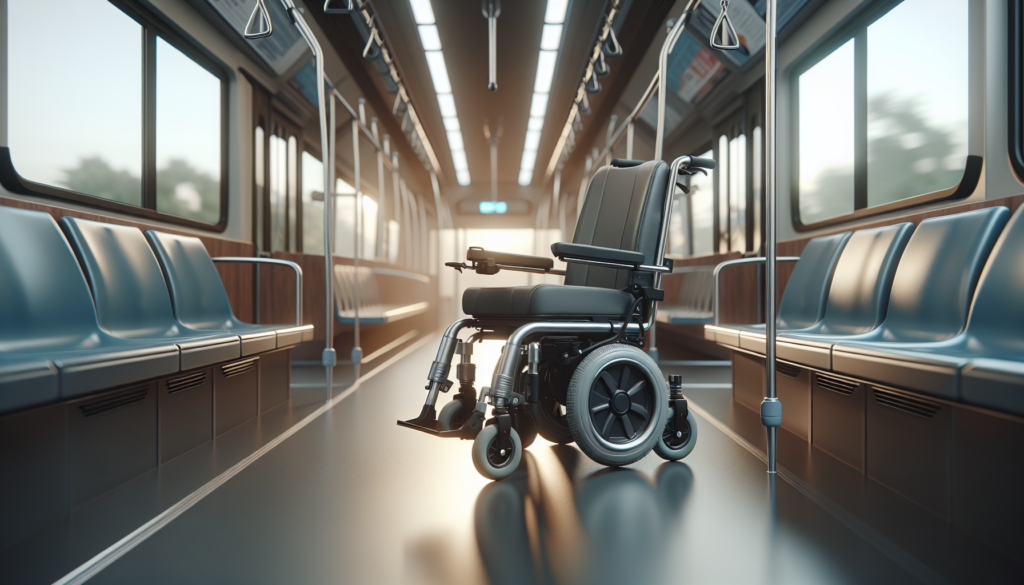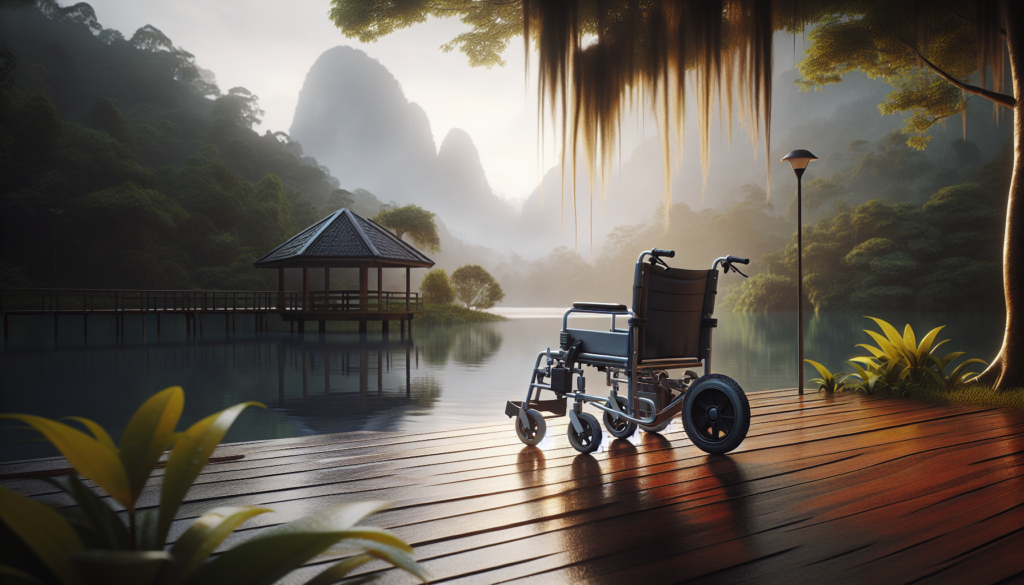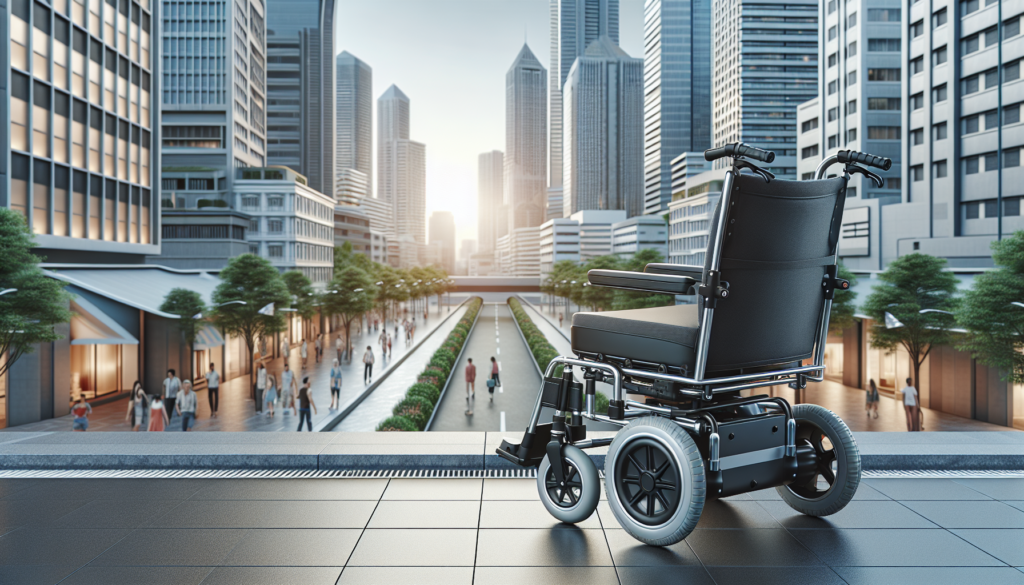
In the world of mobility solutions, electric wheelchairs have become an essential mode of transport for many individuals, offering independence and freedom of movement. When it comes to choosing the right electric wheelchair, one key consideration is the balance between lightweight and heavy-duty models.
Lightweight electric wheelchairs, like the Edegree EW6, are designed for ease of transport and can easily navigate tight spaces, while heavy-duty options, such as the Stonbike TU-04, provide enhanced durability and support for greater weight capacities. In this blog by EKO Life MY, we will delve into the differences between these two types of electric wheelchairs, exploring their features, performance, and overall value to help you make an informed decision for your mobility needs.
Overview of Electric Wheelchairs
Electric wheelchairs have revolutionized mobility for individuals with disabilities, providing options that cater to different needs and preferences. When looking at lightweight electric wheelchairs, such as the Edegree EW6, users can enjoy portability combined with performance. Weighing only 14.8 kg with the battery included, this model offers a decent range of 10-15 km per charge and features a dual motor with a 24V190w brushless motor. Its compact design allows for easy transport and storage, making it an ideal choice for users who prioritize convenience and ease of use. However, the Edegree’s climbing ability is limited to less than 10°, which may not suffice for those needing to navigate steeper terrains.
On the other hand, heavy-duty electric wheelchairs like the Stonbike TU-04 cater to users requiring more robust performance. With a maximum load of 150 kg and the capability to climb slopes of up to 25°, this wheelchair is built to handle challenging environments. While it weighs more at 28 kg and has a slightly longer charging time of 3-5 hours, the trade-off comes with improved power and stability. Additionally, the Stonbike TU-04 offers an impressive range of 25 km per charge, making it well-suited for extended journeys. Ultimately, the choice between a lightweight and heavy-duty electric wheelchair depends on individual requirements and lifestyle activities.
Specifications Comparison: Edegree EW6 vs Stonbike TU-04
When comparing the specifications of the Edegree EW6 and Stonbike TU-04 electric wheelchairs, several key factors emerge. The Edegree EW6 is a lightweight option, weighing only 14.8kg, and is designed for users with a maximum load of 100kg. It is powered by a dual motor 24v190w brushless motor, enabling it to provide forward and reverse speeds of up to 8km/h. The battery capacity is 24V 10AH, and it offers a range per charge of 10-15km, making it suitable for shorter excursions. However, the charging time of 6-8 hours may limit its usability for back-to-back trips. The Edegree also features five-speed modes and has a climbing ability of less than 10°, catering to gentle terrains.
In contrast, the Stonbike TU-04 offers enhanced specifications that favor heavier-duty use. With a weight of 28kg, this model supports a maximum load of 150kg, making it suitable for a broader range of users. The dual motor 24v250w provides a robust performance with a climbing ability of up to 25°, allowing users to navigate steeper inclines. It boasts a better range of 25km per charge and charges quicker, within 3-5 hours. Although it has a slightly lower maximum forward and reverse speed of 6km/h, the Stonbike TU-04’s combination of power and durability positions it as an ideal choice for more demanding environments.
Weight Considerations: Maneuverability vs Stability
When choosing between a lightweight and a heavy-duty electric wheelchair, weight considerations play a crucial role in defining maneuverability and stability. For instance, the Edegree EW6, weighing only 14.8kg, offers remarkable maneuverability, making it suitable for indoor environments where tight spaces are common. Its lightweight design allows for easy handling while still supporting a maximum load of up to 100kg. In contrast, the Stonbike TU-04 is significantly heavier at 28kg but compensates for it with enhanced stability, crucial for outdoor use or uneven terrain. This heavier frame can support up to 150kg, providing a robust option for users requiring additional strength and durability.
Choosing the right wheelchair depends largely on the user’s lifestyle and needs. If agility and ease of transport are paramount, the Edegree EW6 excels with its lightweight build and manageable speed settings. However, if the user requires a more stable ride capable of navigating slopes and outdoor conditions, the Stonbike TU-04’s added weight and climbing ability of 25° become essential features. Ultimately, it’s a balance between the benefits of increased maneuverability with the lightweight model versus the reliability and stability offered by the heavier model.
Range and Battery Life: Finding Your Ideal Fit
When considering the range and battery life of electric wheelchairs, it’s crucial to evaluate your personal needs. The Edegree EW6, a lightweight electric wheelchair, offers a range of 10-15km per charge. It is powered by a 24V 10AH lithium battery that requires a charging time of 6-8 hours, weighing just 14.8 kg, including the battery.
This option is excellent for users who require a portable solution and have shorter travel distances. However, it has a maximum load capacity of 100 kg and a climbing ability of less than 10° degree, which may limit its functionality for some users. The speed is moderate, reaching up to 8 km/h forward or in reverse, making it suitable for various environments but may require longer resting periods due to its battery life.
In contrast, the Stonbike TU-04 heavy-duty electric wheelchair provides a significantly better range of 25 km per charge. This model, equipped with the same battery type and size, only requires a 3-5 hour charging time. Although it weighs more at 28 kg, it can accommodate a heavier user with a maximum load of 150 kg, offering a climbing ability of 25° degree which makes it more versatile for outdoor terrains. With a forward and reverse speed of up to 6 km/h, the TU-04 is an excellent option for those needing more extensive travel and support in tougher conditions. Ultimately, your ideal fit will depend on your specific requirements in range, load capacity, and environment.
Climbing Ability: Conquering Different Terrains

When it comes to climbing ability, the differences between lightweight and heavy-duty electric wheelchairs become quite apparent. The Edegree EW6, a lightweight electric wheelchair, has a climbing ability of less than 10 degrees, making it suitable for gentle inclines and smooth surfaces. Its configuration is ideal for users who primarily navigate urban environments or indoor spaces. The dual motors provide sufficient power for flat terrains, but may falter on steeper inclines, which can limit its usability in more rugged settings. This could be a crucial factor for users who might encounter a range of elevation changes during daily activities.
In contrast, the Stonbike TU-04, a heavy-duty electric wheelchair, boasts a climbing ability of 25 degrees, allowing it to conquer steep hills and uneven terrains with ease. Its robust construction supports a maximum load of 150 kg, making it suitable for larger individuals or those requiring additional weight capacity. The dual motor system not only enhances power but also ensures stability on challenging paths. Therefore, for users who need reliability on various slopes and outdoor adventures, the Stonbike TU-04 would be the superior choice, providing greater versatility in navigating diverse environments.
Speed Variability: Performance for Different Needs
When choosing between a lightweight electric wheelchair and a heavy-duty electric wheelchair, speed variability plays a crucial role in performance tailored to individual needs. The Edegree EW6, weighing 14.8kg, boasts a forward speed of 0-8km/h, making it suitable for users needing a swift, maneuverable option for daily activities. With a climbing ability under 10 degrees and a maximum load capacity of 100kg, this lightweight model is ideal for those who prioritize agility and ease of transport. Its dual motor system ensures a smoother ride and optimal speed adaptation, aiding users in maintaining their independence with swift movement across varied terrains.
In contrast, the Stonbike TU-04, weighing significantly more at 28kg, offers a slightly lower forward speed of 0-6km/h. However, it shines in its climbing ability, capable of navigating 25-degree inclines, and supports a higher maximum load of 150kg. This heavy-duty model is perfect for users who require additional stability and strength for various environments, prioritizing durability over speed. With both wheelchairs employing a dual motor system and a 5-speed mode, it becomes paramount for users to carefully assess their personal needs and preferences when determining which model offers the best speed variability for their lifestyle.
Price Analysis: Cost vs Value in Choosing Electric Wheelchairs
When it comes to the price of electric wheelchairs, understanding the cost versus value is crucial for potential buyers. The Edegree EW6, a lightweight option, is priced at RM 4,388 and offers a range of features such as a dual motor and a total weight of 14.8kg, making it easier to handle. Despite its higher price point, it has a limited range per charge of 10-15km, which may not be suitable for longer outings, potentially lowering its value for users who require extended mobility. Its climbing ability is also less robust, rated at less than 10°. While the weight and speed make it more portable, the cost-effectiveness may be questionable for those seeking durability and extended performance.
In contrast, the Stonbike TU-04 provides a more heavy-duty experience at a lower price of RM 3,600. With a maximum load capacity of 150kg and an impressive climbing ability of 25°, it presents substantial value for those who require a robust option. Although it weighs more at 28kg and has a slow forward speed (0-6km/h), it boasts a larger range per charge of up to 25km and a shorter charging time of 3-5 hours. Buyers need to consider their specific needs; while the lighter Edegree EW6 offers portability, the Stonbike TU-04 balances strength and function at a more affordable price, ultimately making it a more compelling choice for many.
User Experience: Comfort and Usability
When it comes to choosing between a lightweight and a heavy-duty electric wheelchair, user experience plays a significant role. Lightweight electric wheelchairs, such as the Edegree EW6, offer exceptional maneuverability with a manageable weight of just 14.8 kg, making them particularly user-friendly for navigating tight spaces and urban environments. Comfort is enhanced with features like a 5-speed gear mode and a modest climbing ability of less than 10°, which allows users to tackle gentle slopes without strain. The Edegree EW6’s speed options range from 0 to 8 km/h, providing a smooth ride that suits leisurely outings, although it has a more limited range per charge at 10-15 km, which may require more frequent recharging during extended use.
On the other hand, heavy-duty electric wheelchairs like the Stonbike TU-04 are designed with a robust user experience in mind. Weighing 28 kg and capable of supporting a maximum load of 150 kg, this model stands out for its impressive climbing ability of up to 25°, perfect for users tackling steeper terrain or uneven surfaces. While the forward and reverse speed is slightly lower at 0-6 km/h, the enhanced range per charge of 25 km ensures longer outings without the worry of battery life. The Stonbike’s dual motor provides additional power, elevating comfort levels, particularly for users requiring stronger support. Depending on individual needs, both options deliver distinct usability and comfort tailored for different lifestyles.
Choosing the Right Electric Wheelchair for Your Needs

In conclusion, the choice between a lightweight electric wheelchair and a heavy-duty option ultimately boils down to your specific needs and lifestyle. The Edegree EW6 offers fantastic portability with a range of 10-15 km and a weight of just 14.8 kg, making it suitable for those who prioritize ease of transport and convenience. Meanwhile, the Stonbike TU-04 stands out with its robust build and ability to tackle steeper inclines, supporting heavier loads with a maximum weight capacity of 150 kg, perfect for individuals who require durability and enhanced performance for more rigorous use.
As you weigh the pros and cons of each type, consider factors such as battery range, charging time, and speed. Both the Edegree EW6 and the Stonbike TU-04 provide exceptional features that cater to different preferences. Ultimately, your choice will significantly impact your daily mobility and independence, so take the time to assess which electric wheelchair aligns with your unique lifestyle and needs.

Btw, i found the summaries really way too long. Can we get a shorter version?
Hi Sarah Nair, thank you for taking the time to share your feedback with us. We appreciate your suggestion to have a shorter summary, and we’ll definitely consider it when reviewing our content. If you have any other ideas or concerns, feel free to reach out to us at [email protected] or +60 3-7890 3042. We’re always here to listen and make improvements.
Interesting that this blog even exists if there’s no actual content yet.
Thank you for sharing your thoughts, Elsie! We’re excited to announce that our content will be available soon. In the meantime, please feel free to visit our store or learn more about our services to get a head start. If you’d like to stay updated, we encourage you to reach out to us through our email: [email protected] or phone: +60 3-7890 3042. We’d be happy to hear from you!
Also, keep an eye on our blog as we will be dropping new content very soon. Thanks for being patient and for choosing Eko Life Malaysia!
Can we have links to the actual blog posts at least? Im having trouble finding them.
Hi Adrian, thank you for reaching out to us. We understand that being able to access related blog posts can be very helpful. However, we are a community-driven blog focused on empowering bicycle, ebike, and escooter enthusiasts. Unfortunately, I couldn’t find any relevant blog posts in our database that directly ties to the community and services we offer. We highly recommend checking our official website at any time. If you’re interested, and would like me to guide you to our blog. I’ll be more than happy to assist. Alternatively, please feel free to contact us directly at [email protected] or +60 3-7890 3042, looking forward to helping you.